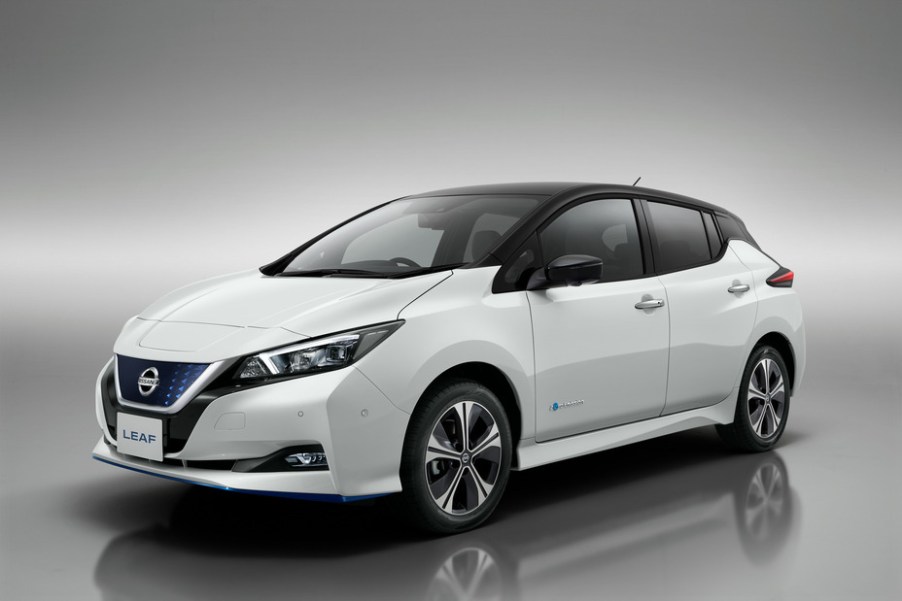
Why So Many Used Electric Cars Are For Sale
All new cars become used cars, and that includes electric vehicles. With leases ending and EVs aging, they’re starting to pop up on dealers’ used car lots. As one would expect. That said, as Motorbiscuit.com has explained, EVs make up only 2% of all cars sold in the U.S.
They’re Selling
At only 2%, they’re not overflowing onto sidewalks. But they are showing up on used car lots. And they’re selling. At least according to used-car shopping site Shift. The site says that the first half of this year EV sales tripled from the first half of 2018.
“Twenty-percent of what we sell is hybrid or electric,” says Shift co-CEO Toby Russell. He acknowledges Shift’s market tends to reside on the coasts, meaning the figures might be a bit skewed.
Cheap Means Easy
Over 40 million used cars were sold in 2018. With used EVs being fairly inexpensive, it’s easier for potential customers to jump into the electric parade.
Why Now?
As early iterations of the Leaf were limited in range, the upside is mileage stayed lower as a result. Additionally, Nissan offered an eight-year warranty on batteries. This is just now expiring. Nissan also provides five-year or 60,000-mile coverage for battery capacity loss. This is motivation for owners to step up to newer models, though most experts say the batteries should last at least 10 years.
Range will diminish as mileage increases. Estimates for a new battery including replacement are under $6,000, according to Nissan.
Now low-mileage Leafs are making their way to used car lots at prices below $10,000. And with 60,000 miles, the point at which capacity loss coverage ends, they are hovering at $6,000.
Spread Your Spend
Theoretically, you could slide into a 60,000-mile Leaf, enjoy it for two-to-four years, and then spend $6,000 to potentially drive another 60,000-miles with little cost other than maintenance. Don’t forget you’re not paying a dime for gas.
As new EV sales increase, that in turn lays the foundation for more used electrics in a few years. It also breeds familiarity, reinforcing their mainstream nature. It’s a process and it takes time. Ultimately many will decide that the environment isn’t what motivates them to consider electrics, as much as it’s economics.



